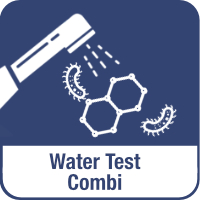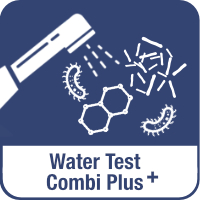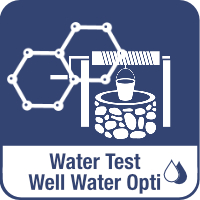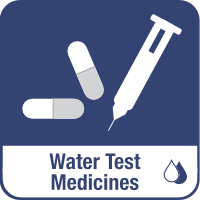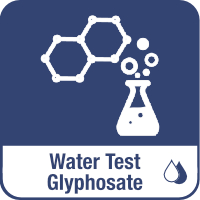- Water tests
- Air and pollutants analysis
- Mold analyses
- Asbestos analyses
- Rapid tests
-
Knowledge
- Further news
- Analysis made easy
- Tap and drinking water in Switzerland
- Facts about Indoor Air
- Facts about Mold
- Facts about Asbestos
-
Water quality in Switzerland
- Water Scarcity and Water Quality
- Drinking Water in Switzerland
- Tap Water in Switzerland: Quality and Controls
- Drinking Fountains in Switzerland
- Water Quality - Canton Basel
- Water Quality - Canton Bern
- Water Quality - Canton Geneva
- Water Quality - Canton Zurich
- NEWS: Zurich Drinking Water Map
- Drinking Water - City of St. Gallen
- Water Quality - City of Baden
- Water Quality - City of Bern
- Water Quality - City of Zurich
- Water Analysis - City Lucerne
- Water Quality - City of Winterthur
- The Water Supply of the City of Thun
- Initiative for Clean Drinking Water
- Nature's Thirst Quenchers: Fountains and Springs on Your Hike
- Partnership with WATER FOR WATER (WfW)
- Help & Services
Water Quality in Baden

The drinking water for the municipalities of Baden and Ennetbaden is sourced approximately 40 % from spring water and 60 % from groundwater. The well-known mineral-rich thermal water is drawn from separate springs.
Water Hardness: In the supply area, hardness is about 30 °fH (16.9 °dH), which corresponds to roughly 300 mg of calcium carbonate per liter.The hardness degrees (°fH = French hardness, °dH = German hardness) indicate the concentration of dissolved minerals such as magnesium and calcium. The higher the concentration, the “harder” the water.
✔ Conversion: °fH × 0.56 = °dH
Baden’s tap water is comparatively hard, which can lead to more limescale deposits in household appliances. Many people perceive the taste as particularly “mineral-rich.”
Drinking water is one of the most strictly controlled foodstuffs in Switzerland. Water quality is continuously monitored through laboratory tests.
Why Might a Drinking-Water Test Be Useful?
Although Swiss drinking water is rigorously monitored, contaminants can enter the supply beyond the house connection through pipes or fixtures. The owner is responsible for in-building quality. Pollutants such as heavy metals or microbes cannot be detected by sight.
A laboratory analysis provides clarity on your home’s water quality – especially important for households with sensitive individuals such as infants, pregnant women, or seniors.
Reasons for a Water Analysis:
- Regular consumption of tap water
- Noticeable changes in taste, odor, or clarity
- Infants or pregnant women in the household
- Use of water carbonators
- Uncertainty about the building’s pipe materials
Further Information
✔ Heavy metals and pollutants
✔ For general drinking water, softeners
✔ Legionella, heavy metals and pollutants
✔ For general drinking water and softeners
✔ Heavy metals and contaminants
✔ Separate bacteria test recommended
✔ Heavy metals and contaminants
✔ Separate bacteria test recommended
✔ Analysis for lead also included
✔ Separate bacteria test recommended
✔ Risk of transmission during showering
✔ Causes Legionnaires' disease
✔ Most common contaminants
✔ Bacteria analysis available separately
✔ 12 common pharmaceuticals
✔ e.g., diclofenac, ibuprofen
✔ Most common pesticides
✔ Glyphosate separate analysis
✔ Commonly used pesticide
✔ Possibly carcinogenic
✔ 20 common PFAS chemicals
✔ Per- and polyfluorinated alkyl substances

